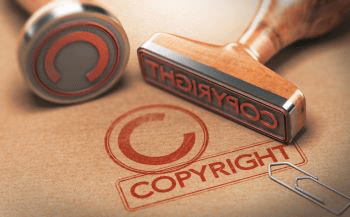
A copyright is the right to copy and distribute art, music, literature, and other intellectual works. These rights were first defined by the US Constitution, which states, “[The Congress shall have power] To promote the progress of science and useful arts, by securing for limited times to authors and inventors the exclusive right to their respective writings and discoveries.” This means that authors retain their copyrights for their entire lifespan plus 70 years. But what are the exceptions to this rule? Here, eContent Pro will explain what happens when a copyright is forfeited, what happens, and what you can do to keep your copyright.
When Is A Copyright Forfeited?
It may seem like an author always retains their copyright, but this isn’t necessarily the case. Under the work made for hire doctrine, employers or commissioners are legally classified as the author and therefore are considered the initial copyright owners. There are two situations where this doctrine is enacted: If the work in question was prepared by an employee in the time of their employment, or if the work was commissioned with a signed agreement that defines the assignment as a work made for hire. Simply put, this means that unless both parties consent to an alternative, any work an employee creates is automatically the copyright of their employer.
Most open access journals allow the author to retain the copyright, as open access is available to the general public for free. But if a subscription-based journal does not have open access, this generally means that the copyright transfers to the journal. This is also true of publishers in all facets of media. In a general sense, publishers automatically retain the copyright once the completed work is contracted.
What Happens When a Copyright is Forfeited?
Authors signing their copyright away is a relatively common practice now, but some authors don’t know what exactly that means for their work. The Copyright Act outlines these parameters precisely, but in short, the copyright holder has the exclusive rights to what are defined as “derivative works.” These include reproducing or distributing the work, displaying or performing the work publicly, and creating any new work that is based on the original. The author’s name is still attached to the work and is given full credit, but an author may not do anything with the work outside of their publisher unless they are given express permission.
How Can You Retain Your Copyright?
There are a few ways that an author might retain either part or all of their copyright, and most of them involve negotiating with the publisher. For example, some journals allow authors to retain their copyrights in a “non-exclusive” agreement, meaning that rights are exclusive to the publisher only for a specified amount of time. There is also the option to create an addendum, or a statement of the rights that you wish to retain. Sometimes it’s just a matter of shopping around for the right publisher, as some already include a few retained rights for the author in their transfer agreement.
Copyright laws are complicated and understanding these laws and what your rights are is key in navigating the tricky world of publishing. Do you have a manuscript that you’re considering for publication? With eContent Pro’s scientific & scholarly editing service, your manuscript will be thoroughly analyzed by experts in the field, who will give you feedback and suggestions on how to improve for submission. Prepare your document for success!

